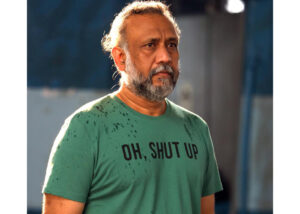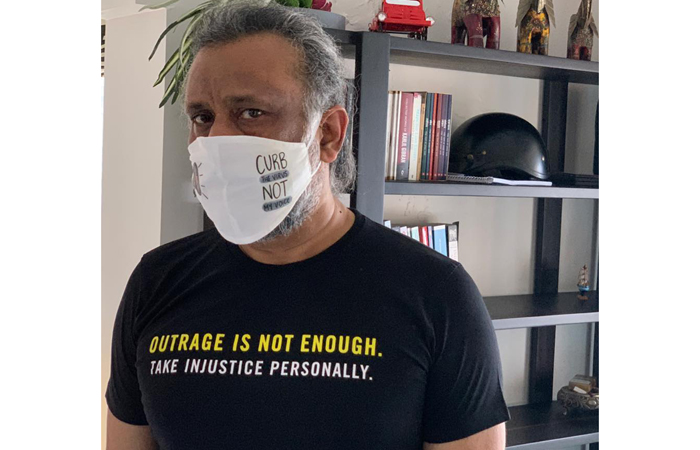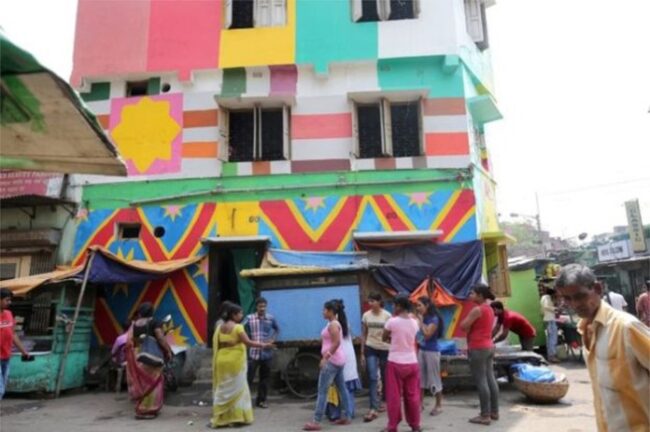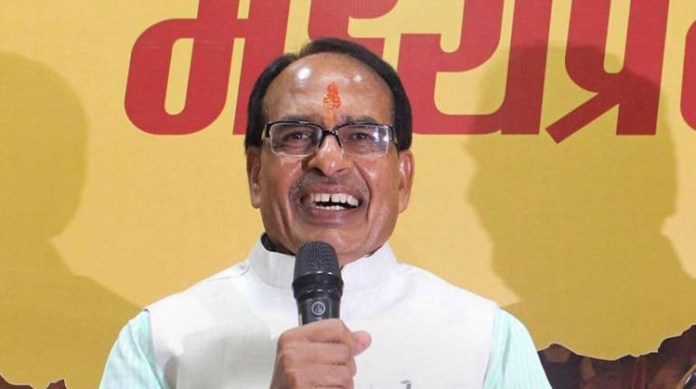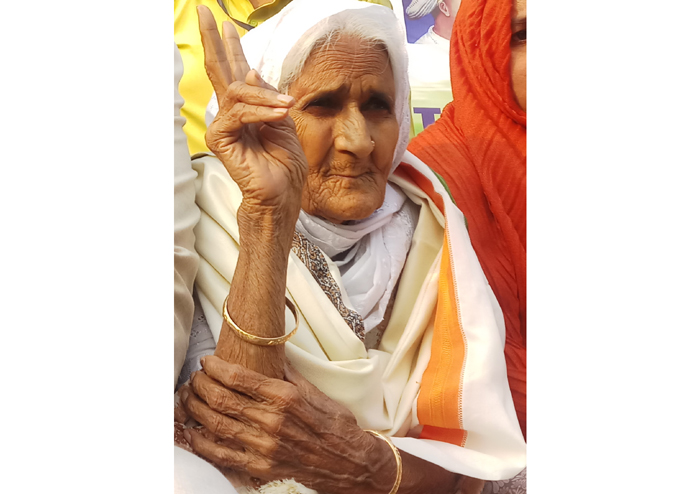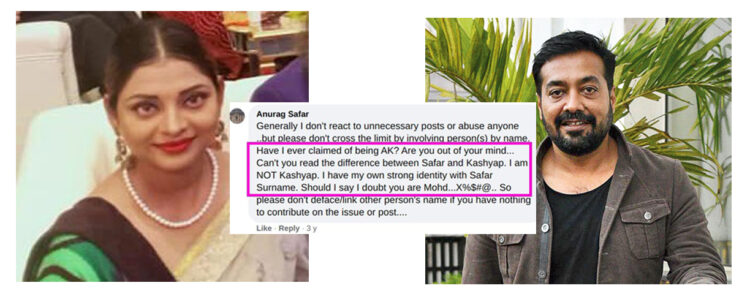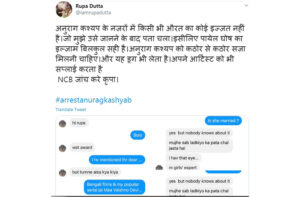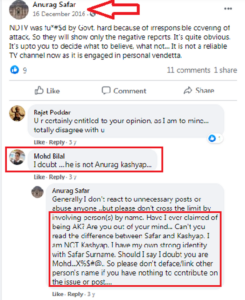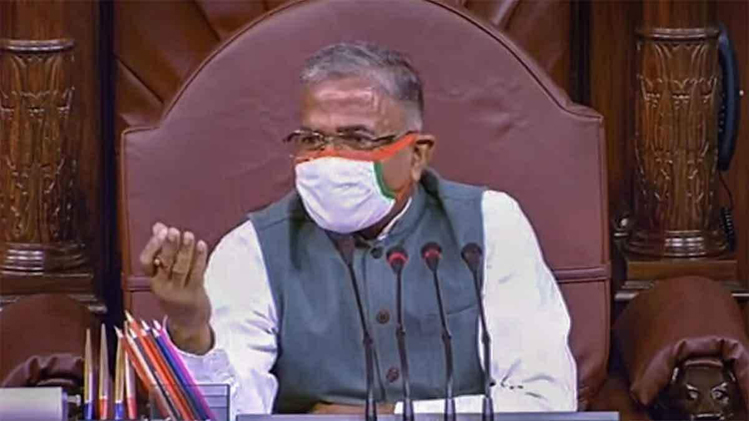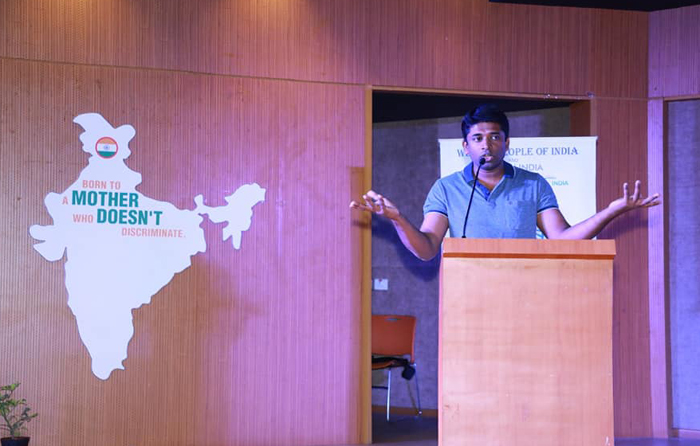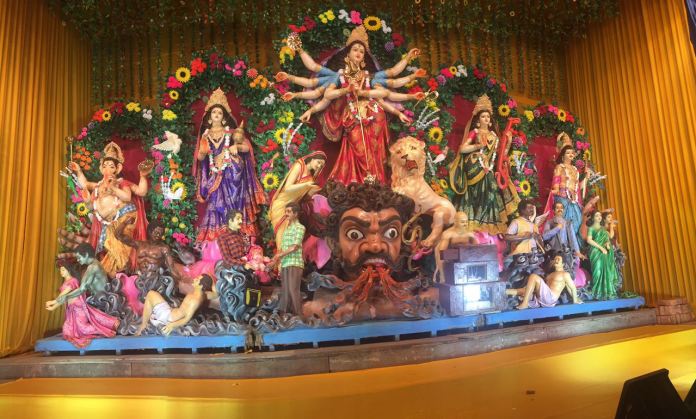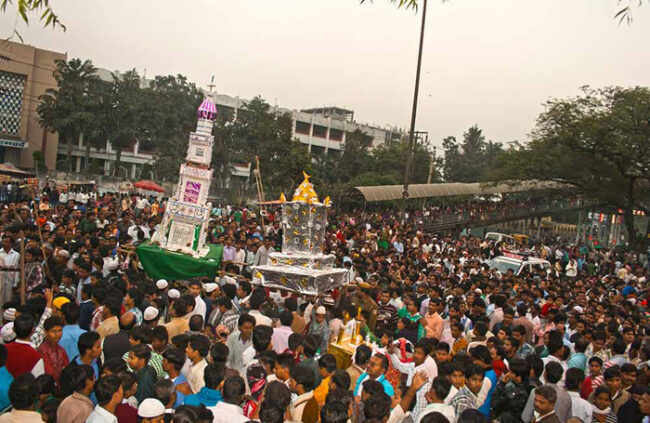Kannan Gopinathan is a 2012-batch officer of the AGMUT cadre who resigned from the Indian Administrative Service (IAS) over the restrictions imposed on Jammu and Kashmir after the Narendra Modi government revoked the state’s special status under Article 370.
Kannan, who was once applauded for his efforts to make a difference for the people, is now leading a simple life, committed to fighting for the rights of citizens, away from the glamour of bureaucracy. Excerpts from his interview with Dr Anjana Varma.
eNewsroom: Please share your journey into and out of IAS?
Kannan: I had no dreams of entering civil service. Being an engineer and working, a few of us had started teaching street children. As part of these NGO activities, I had met my wife who joined as volunteer. When we realised the desired result was not coming, we decided to get into the system. So I prepared for civil service and got selected.
It was very suffocating when it came to individual rights, as a bureaucrat and a citizen. I felt disturbed seeing the citizens being restricted before and after the abrogation of Article 370 as part of the preparations needed to implement the government decision, like arresting anyone and everyone, shutting down an entire state for that. I still had faith in the country and its democracy. But day by day my belief got shattered for multiple reasons; with the judiciary refusing to hear habeas corpus petitions, arresting the resigned civil servant Shah Faesal without any reason and the lack of questioning from every quarter. Even the PCI chairman gave an affidavit in SC that they accept the government restrictions. How can the media say that? It’s totally unacceptable. This is not the country that I believe India is. For me it was difficult to complain while in service. At some point, I decided that I don’t have to be a part of this; I need to express my views freely and as strongly as possible. So I put in my papers.
eNewsroom: And what about the allegations that you resigned to cover-up the show cause?
Kannan: The show cause doesn’t even mean a charge sheet. One can give an explanation and the government can decide to accept or go for a charge sheet. This is the legal procedure. It had five points; forwarding a file to the chairman directly and not through the advisor, delay in putting up a file, then regarding my flood relief activities in Kerala where I had clearly stated I was volunteering and not applying for PM Excellence Award. These are definitely not grounds to fix a person. There were other reasons because during the general election in Delhi I had complained to the Chief Election Officer about the government interfering in the electoral process following which the administrator was forbidden by the commission. So there was a common feeling that some action would come against me after this. I didn’t give more importance than required to this and had replied too. I was given additional charges on August 5, so the matter was closed for me. But later, after two months of resignation they gave me a memo saying that me speaking to media after resignation has adversely affected India’s foreign relations with other countries.
eNewsroom: Was Shah Faesal an influence in quitting your job?
Kannan: Of course, I look up to him as a person who had grown up in difficult circumstances, topped UPSC exam, served J&K for many years then resigned showing more faith in the political system of the country. But when arrested, his wife had filed a habeas corpus. The government replied they need 15 days to reply and the judiciary agreed! This is not the way the system was conceived. The judiciary should always stand with individual rights. We have the judiciary where the judges are kept with all the luxury and comforts, to protect the rights of citizens, especially when there is violation from the state. I asked in several groups as to what wrong has he done but even those who were in positions were afraid to write their opinion. This has definitely influenced me in taking my decision.
eNewsroom: Do you fear freedom of speech or expression is hampered these days?
Kannan: That is definitely the case. When these people don’t share what they really feel about a situation, that itself shows the environment of fear that surrounds. When the intellect are cornered to silence, the downfall of the country starts there. The government should understand this too. It’s easy to silence someone by discrediting nowadays. There is also tremendous amount of online bullying and action by state forces. I myself have a non-bailable cognizable FIR registered against me in Rajkot for writing ‘I am ashamed of you PM’ with regards to the salary cut being imposed against Doctors in AIIMS Raipur. The recent example is the problem Prashant Bhushan is facing. Anybody who voices his or her opinion against the ruling establishment is seen as anti-national. This is very dangerous for our country.
eNewsroom: What have you done for NE during your tenure?
Kannan: When I was asked where I would like to go, I replied India is my country, I would serve anywhere I was sent to. Thus I was posted to Hnahthial in Mizoram, when digital India, Jandhan Yojana etc was starting. But people complained they didn’t have even an ATM without travelling for 3-4 hours or proper internet connection. So my initial efforts were to solve these issues and learned that the actual needs of people may not be according to the priorities of the government. In a subdivision where there is no internet, digital India makes no sense. Then I was posted as DC Aizawl where a lot could be done on the education front, reviving streams, establishing badminton academy and high altitude Centre for Excellence in association with Pullela Gopichand. The talent in NE is amazing but lacks in coaching facilities. Again, some work was done to check the drug abuse among youngsters.
eNewsroom: Do you feel NE region is disconnected from mainland India?
Kannan: I don’t think we need to push anything. Nation building takes time. Though a very old civilisation, we are a very young nation. NE region has gone through severe problems with insurgency and anti-insurgency operations. If we rush to do so many things, it will effectively cause a rupture in the relations and result in unintended consequences. We should just try to be good people and I think naturally people would like to be part of you. Then we also have to consider the cultural insecurities. We need to understand each other better and shouldn’t be prejudiced about a lot of things. If you are able to understand and appreciate the differences, it’s the best way to integrate. We should let everyone be themselves and try to be good, so that we come together as a nation.
eNewsroom: Is NE region neglected by the government?
Kannan: One thing is that the terrain itself is very difficult. If you look at the per capita expenditures, then the actual per capita expenditure of the North East is high, hence you cannot say it is neglected. But then there are instances of around 32 landslides in a single day with the roads coming down a lot of work goes down the drain. Rail network is a bit difficult because of this, but also because there were initial resistance. A lot of people objected fearing unwanted outside influences. So there are various sides to lack of development. For me, it matters what they want, not what we want for them. I think it’s best to understand their priorities and deliver.
eNewsroom: Do you think Article 371 will face problems?
Kannan: These are constitutional provisions in society because of historical peculiarities with which the country was formed and the context in which all these different parts came together. Law is ultimately a legal expression of the morals of the society. Now when somebody having a very different view insists on the same law for everyone, then effectively you’re forcing your morals onto the other person. When the government becomes powerful, the rule of law becomes slightly weak and in that scenario, it can do whatever it feels like, regardless of whether it’s right or good in the long run. Maybe for us, it could be right but may not be right for them. Considering the situation, I strongly hope that the government wouldn’t start another front in the North-East by touching the 371 and other things. You shouldn’t just start firing everywhere just because you can. You can start the fire but you may not be able to douse it.
eNewsroom: But aren’t special provisions discriminatory?
Kannan: For the rest of the people who are not part of the government, we have to understand that it is not discriminatory towards you. Your life is still decided by what is the law as desired by the majority. Somebody else is having slightly different provisions because their value systems or histories are different. Because of that you’re not at all at a disadvantage. By and large, 99 per cent of everything is governed by what the majority is wanting and the minor exceptions are to also give space to the aspirations of different cultural beliefs.
eNewsroom: Why do you disagree with abolition of Article 370 when it is said to divide people?
Article 370 of the Constitution very clearly says that any changes to that should be done with the consultation and consent of the Constituent Assembly of Jammu and Kashmir followed by maybe the Legislative Assembly in the absence of the former. Effectively, it means the consent of the people was required. They instead bypassed the views and opinions of the people and decided it by themselves without giving the citizens a say. Even if the Constitution says otherwise, they found crooked ways to overcome it. That is unacceptable. If the government can just remove Article 370, it could have removed the precise things which cause some discrimination in the state. I cannot accept that being done in any way. The government could have made efforts to convince people instead of using brute force to do it. What has it achieved…? It just shattered the belief of people who believed in the Constitution… it hasn’t changed anything. Kashmir still has the same territory as they did before. If anything, we have lost some territory when the Chinese incursions happened. That’s the current reality.
eNewsroom: What is your take on NE representation in central administration?
Kannan: That is definitely something that needs to be looked into because the representation, especially in the higher bureaucracy, is very limited. One of the reasons is because the numbers are very less, is the population itself. Also they’re clubbed into the larger Scheduled Tribes category in which there are certain tribes which have progressed more and certain tribes which have not. Mizoram used to have IAS officers from 1960 if I’m not wrong. But for the last several years, there is hardly one person every five or 10 years which is not at all good because the exchange of ideas between various parts at various levels is actually important. This can be improved through providing better political facilities and creating civil service aspiration amongst the younger people there. This also has a lot to do with the kind of perceived discrimination. There are many young, absolutely brilliant MCS officers who could be compared to any IAS officer by their capabilities easily… The larger systemic push needs to be there, at every level, to avoid the feeling that it’s marginalised in any way.
eNewsroom: Do you agree or disagree with Modi government policies?
Kannan: I agree with certain things. But the policy decisions to a large extent are heavy handed and half thought through where more than the country the image of the government becomes important. Demonetisation was one such. In the service then, as I could not express my views freely, I wrote ‘great decisions may not be good decisions’. Everyone knew the difficulties it would cause but kept silent as those who criticise could have been seen as having black money. The government thinks it can enforce any decision without any proper consultation. India is a country of a billion micro investors where everyone is trying to survive. When they are told your money has no value, it was a clear message to them from the government that we make decisions and you just listen.
Our economy was going down and then we came up with GST! Similarly, the CAA was brought into force citizenship based on religion for the first time and the nation stood together to say we don’t agree. Even today the government is not clear as to what documents are required to prove the citizenship and if strictly implemented, many genuine people may be excluded for lack of documents and lots of immigrants will gain citizenship just because they have documents. It would be best to work towards doing the right things in the future rather than correcting the wrongs of the past. Again lockdown was announced. Did the government announce a target? What is it that it is going to achieve during the lockdown? A target as to the number of ventilators or ambulance services or volunteer force or hospital beds or anything like that to achieve? Other countries had practical plans which they implemented… Here we are so caught up in the grandeur of announcements. A lot of workers walked miles to reach home, were beaten up and many of them died on platforms and tracks. We beat up our own citizens for just wanting to go home! Why? Because we are not seeing them, our vision is from balconies. Did we achieve anything? Could we control Covid? Despite all this, people are being convinced to vote for them. Many of us consider ourselves as not citizens but only subjects. This is not the democratic India that was envisaged.
eNewsroom: Don’t you fear for your life or career?
Kannan: Should I fear being a citizen if I protest against the government? Being in a democratic country I should be able to do what I want to for the people. I am fully confident and conscious that whatever I have done is in the interest of my country and citizens. A fearful country is not what I want. There are FIRs against me for ridiculous reasons, but that doesn’t stop me from using my freedom to see something better. I had protested against the Congress government too before my UPSC mains without having an iota of fear that my results would be affected. That environment has changed though.
eNewsroom: What can you do without the power of bureaucracy?
Kannan: I have been speaking in various institutions, meeting people, discussing about what is happening and what the reasons are behind something that needs to be opposed. People are giving that time to listen to what I have to say, understand and also curious about my resignation. I am also learning a lot during this process. I could see the large part of movement happening across the country, being led by common man, otherwise not involved in electoral politics. So we shouldn’t underestimate the common people. Thankfully my family shares the same views and opinions.
eNewsroom: What about the allegations that you had resigned as part of greater plans?
Kannan: Is it a crime to have any greater plans? We are still a democratic country wherein we would want our citizens to dream big, right? But that aside, my own past political affiliations if any, I remember going to RSS shakhas till I was in college. Left because I found my views to be different from theirs. Other than that I do not have any history of being associated with any party or group. I am not a member or part of any political party and don’t have any NGO or organisation. All my viewpoints are certainly political, hence can’t say I won’t join politics ever, but no decision is taken yet. I hope to work more at grassroots level, continue to oppose any government in its decisions that may harm people and work towards enhancing the rights of citizens.

